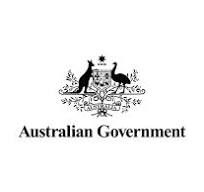Request for Advocacy on Second-Generation Harm from Agent Orange Exposure
- agentorangechild
- May 6, 2025
- 2 min read
Dear Amnesty International,
I am writing to you to bring attention to a critical human rights issue that affects not only the children of Vietnam veterans in Australia but also in New Zealand, Canada, and the United States.
The issue at hand is the second-generation exposure to TCDD (Agent Orange), a toxic chemical used during the Vietnam War.
Despite scientific evidence linking these exposures to a range of serious health conditions, affected children continue to be denied the necessary recognition, support, and healthcare. This is not a singular case but rather part of a global failure that requires urgent attention.
Governments across these nations have repeatedly failed to provide adequate care, despite international law demanding recognition of the harm caused by Agent Orange exposure.
I am requesting Amnesty International’s support in advocating for those of us who have been impacted by TCDD exposure. I have a dedicated website to this cause, detailing both my personal experience, medical and correspondence from all over the world.
The website serves as a resource for those seeking information and advocacy tools, and I invite you to review it for further understanding of the widespread impact.
In particular, I ask if you would consider using the Amnesty International logo on my site, to lend your global credibility and highlight your support in the fight for human rights recognition.
Your backing will help give visibility to this issue and may encourage other international organisations and governments to take responsibility for their role in failing to protect second-generation victims of Agent Orange.
This ongoing violation of human rights is rooted in a global systemic failure to address
intergenerational harm. Your involvement can help ensure global pressure is applied to the governments of Australia, New Zealand, Canada, and the United States, pressuring them to take immediate, comprehensive action.
I would be grateful for your response regarding the use of your logo and any potential steps forward in collaboration.
Thank you for your attention to this matter. I look forward to hearing from you.
Warm Agent Orange Burns regards,
Danielle

Amnesty International can do a number of important things, depending on their capacity and priorities:
Investigate and document your case
They can take a closer look at your evidence and include it in broader human rights reports on environmental harm, disability, or intergenerational justice.
Issue a public statement or urgent action
If they determine your case reflects a pattern of rights violations, they may issue a public call for accountability—something that garners international media and political attention.
Pressure governments and international bodies
Amnesty can contact the Australian government and urge compliance with international treaties, such as the CRPD and Stockholm Convention, especially if your case highlights breaches.
Support your advocacy
They might provide visibility, strategic advice, or partnerships with other organizations. If they allow use of their logo, that’s a strong signal of solidarity.
Connect you with legal and international experts
Amnesty works with human rights lawyers and the UN—your story could reach those who file formal complaints or bring systemic cases before international bodies.



Comments